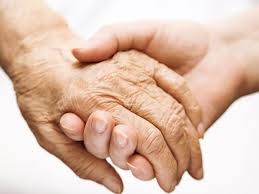
Summary of April 1st Presentation:
Sanity in the Time of Corona
Index
Part 1: General Concerns and Recommendations – Isabel J. Kaplan, Psy.D.
Part 2: Article Addressing Issues Relating to Families with Children and Teens – Jennifer Naparstek Klein, Psy.D.
Part 3: Advice for Work during Covid-19 – Laura Finfer, Ph.D.
Part 4: Take Aways from Case Presentation – Gladys Foxe, Ph.D.
Part 5: Mental Health Resource List
Part 1: General Concerns and Recommendations – Isabel J. Kaplan, Psy.D.
Exposure to News
- Assess the impact on your mood
- Limit exposure from all sources—print, radio, internet to tolerable levels so you feel informed but grounded
Exposure to Other Content
- Music, movies, TV and books also impact your mood
- Pay attention to the impact and choose wisely
Connection to Others
- Very important for mood regulation and to prevent loneliness
- Video chat can be a more powerful means of connection
- Assist older relatives to enable video options if possible
- Staying connected is time consuming; prioritize if it feels burdensome
Importance of Structure and Routine
- Wake up and go to sleep at normal times on weekdays
- Get dressed everyday
- Eat when and what you normally eat, if possible
- Plan your day no matter how much or little you have to do
- Physical activity improves mood
- Get outside if at all possible—nature improves mood
- Do yoga, Pilates, physical training, etc. via Zoom (many free offerings)
- Take advantage of many free online activities such as cultural offerings (museums ad orchestras), academic classes, game playing (not gaming), crafting classes and groups, foreign language lessons, etc.
Activities for Reduction of Anxiety and Depression
- Physical activity
- Meditation—see apps on resource list
- Guided imagery recordings for help with sleep (same apps)
- Identify your specific sources of anxiety to help you plan what changes you can make to reduce it
- Notice feelings of helplessness and find ways to feel impactful and helpful, if possible, such as donating to COVID-19 related causes, calling fellow TCC members as part of our phone tree, sewing masks, organizing people in your building to coordinate shopping runs, check in on people near you who are living alone
- Get help if your feelings are overwhelming you—most therapists are working remotely. See resource list for referrals or ask your internist, insurance company or friends and family
Part 2: Article Addressing Issues Relating to Families with Children and Teens – Jennifer Naparstek Klein, Psy.D.
Click here to read the article “Coronavirus Anxiety & Facing the Unprecedented”
Apr. 1, 2020: New York City restaurants offering only takeout, trains nearly empty, schools closed, college kids home, office workers telecommuting, fears of coughs, sneezes, or touching handrails or doorknobs–we have never seen anything like this before.
September 11, 2001 may be our nearest reference point, but mostly what we felt that day, and in the weeks following was shock, and a new normal–our country at war with terrorists.
However, unless you were directly impacted by the loss of a loved one, within a week, your life slowly resumed. Businesses reopened, kids returned to school, we went back to work, the gym, the market, restaurants, movies, malls–we went back to life, perhaps emotionally scarred but back to normal.
This return to normal, I suspect, will happen again in the case of Coronavirus (COVID-19), but the wait will be longer–perhaps a month, perhaps more. This cessation of routine –for some, losing work, earnings and the threat of a deterioration of business; for our children a breakdown in their schedules and a need to make a major adjustment to online education; and for the elders in the community downright fear of exposure and illness. This situation is unprecedented. So, the question becomes, simply, how do we cope?
Let’s begin with the reality at home. Not only are we all thrust together, but all individuals in the house are wondering how they will navigate their new routines. Routine is probably the key word. Humans thrive on routine, so the best thing we can do to manage chaos is to create a new routine.
Working regularly with those suffering with depression and anxiety has taught me that routine and self-care are vital to emotional well-being. For example, sleeping your usual amount, not more or less; eating at prescribed times, not all day long; being productive during certain hours, not loafing all day.
It is certainly nice to take a staycation, but after a while, we need to feel productive; it is actually therapeutic.
Productivity can be defined differently by each person. (Parents should resist the urge to impose assignments on children who are 12 and older; rather ask them for a list of what they want to accomplish and build from there.) It’s advisable to choose a few activities that have been on the back burner for a while; now, you may have time to accomplish them.
Binge-watching some video series may be on the list but, of course, that should not be the list! Also, it’s good to keep up hygienic care–shower, get dressed, do the usual grooming, for a sense of health and well-being. And, of course, physical activity, which releases natural endorphins, is advisable.
Most people, especially those who are prone to anxiety and depression,will benefit from being outdoors in the sunlight. Families can do this together, or if solitude is what you need, take turns and support each other’s efforts to self-care.
In my work with tweens and teens, I am typically not a fan of excessive use of social media. Despite the connectivity it affords its users, it can create stress and cause relationship ruptures between peers.
But during this crisis requiring social distancing, I am amending my take on it. Our tweens and teens need to know how their friends are feeling.
They need to share their own experiences and hear them validated by their peers. The common fear of being left out of gatherings should be reduced to a minimum since most people are, or will be, keeping their children home.
Therefore, chatting and laughing, sharing what they create while home–music, art, poetry, videos, etc.–and celebrating birthdays virtually, etc. will be important for tweens and teens. It won’t be ideal for them to spend all their time on social media, texts, and phone interfaces, but maybe some time each day, if they choose to, so they can stay connected.
One caveat is that the internet contains some alarming, and sometimes grossly incorrect, news and memes about Coronavirus (COVID-19). If your teens and tweens seem upset by what they are seeing or hearing, encourage them to take a break (the same goes for you!). Similar rules apply for COVID-19 as for academic research and current events–check your sources. Trust only reliable sources, and discard anything that feels like hearsay.
By the way, teens may loudly express a desire to get together physically with friends, but this is not advisable. As their adults, we need to protect them and the community. Remember that teens and young adults have a developmentally appropriate sense of omnipotence and egocentrism, so it’s up to adults to set these difficult boundaries–and enforce them.
Frankly, parents of young children are the ones for whom I am most concerned. The comforts of routine are bound to be terribly disrupted–preschools and elementary schools closed, nannies and babysitters afraid to travel, the usual places of comfort like climbing jungle gyms in parks, or music and art classes, or sports activities, all canceled.
Parents may be home from work, and suddenly becoming early childhood educators on the fly, or spontaneous elementary school teachers, or at the very least, facilitators. Co-parents in these circumstances must support each other–create a tag-team approach. Take breaks. Try not to fight with your children over schoolwork–these are not ideal circumstances, so in the Fall, primary educators will be bound to do a great deal of “review.”
Just remind yourself that you don’t need to be a super parent, just a “good enough” parent, the clinical term coined by D.W. Winnicott, one of the fathers of child psychology. Your child needs you to be good enough, not perfect.
Sample schedules for families are being circulated on Facebook and elsewhere that might be helpful to some parents, but they can make those who are overwhelmed feel inadequate. This crisis is new to all of us, and the key is finding a rhythm that works for you.
My advice for the good enough parent is to combine what your children need to do for school with what is in your wheelhouse, and what you already enjoy doing with your children. What are their talents and abilities, or their “wheelhouse” activities? If you like to cook, then cook with your children. If you love music, put on some music and listen, or dance. If you like quiet activities, then do those, and if your kids become bored or disinterested, release them. You will not be evaluated on how well you did–there will be no scorecard.
One additional piece of advice: be forgiving of yourself and your family. Every one of you is out of your normal routine, and there are certainly additional stressors for each family. Financial concern is a common stress point for adults under normal circumstances, and during this crisis, that stressor is bound to be on red alert.
You’ll be arguing over trying to get children to do chores or to exercise, but you will really be feeling the stress of trying to get work done while caregiving, or not being able to work at all, maybe losing some of your usual income, or the uncertainty of what work will look like after this crisis is over. So, be gentle with each other, and use your intuition. If your family needs to relax rather than stick to a prescribed schedule, do what feels right.
Finally, stay connected. Stay in touch with your friends and family. Take care not to become isolated. If you are feeling stressed, check with friends– I’ll bet they feel stressed too.
Part 3: Advice for Work During Covid-19 – Laura Finfer, Ph.D.
- The anxiety and stress are real. Acknowledge these feelings, don’t bury them.
- People will likely be less productive and make more mistakes when stressed. This is normal. Take the time to check and double-check.
- Pick 1-2 priorities each day and do them well. Don’t take on too much.
- Take breaks, breathe.
- Don’t be hard on oneself – everyone is off their games.
- Tensions among people are likely to increase. Sort the rational elements of disagreement from those that are emotional. Focus on resolving the rational aspects.
- Thank colleagues and direct reports for persisting through these uncertain times. Compliment and recognize jobs well done.
- Communicate openly and transparently with frequency.
- Keep things fun and light. It’s good to laugh and enjoy oneself.
- Balancing work and family is even more challenging. Parents can make schedules– who’s watching the kids and when versus when work activities are happening. Revisit parenting principles (e.g., screen/tv time, snacks etc.), define what you need from each other to make it work, and put concerns on the table for discussion.
- Capitalize on this shared experience that everyone is going through together. Make sure to see colleagues by video to maintain connectivity. Make it fun – show your pet, your kids, where you work at home, etc.
- Stress has a real impact on decision making. It can limit the range of options under consideration or the depth of the analysis. Awareness of these impacts can help to self-monitor and correct.
- There is a lot that is out of our control at the moment. To be productive, focus on what you can control/influence.
Part 4: Take Aways from Case Presentation – Gladys Foxe, Ph.D.
Your moods may be intensified by the atmosphere and evidence of what is all around us. Latent anxieties and fears become manifest quickly in stressful times.
Everyone has their sensitive spots, their ways of feeling anxious. Trying to understand oneself is a better guide to interacting with others and to activity planning.
Connecting with others by aware listening beats arguing every time. Anxiety and Panic means no one is listening.
All plans and activities work better with self-awareness and understanding.
Part 5: Mental Health Resource List
- How to Have a Successful Virtual Happy Hour
https://www.nytimes.com/2020/03/20/well/virus-virtual- happy-hour.html? referringSource=articleShare - What to Watch, Read and Listen to During Your Coronavirus Self-Quarantine
https://www.nytimes.com/article/coronavirus- quarantine-what-to-watch.html? referringSource=articleShare - You Can Take Care of Yourself in Coronavirus Quarantine, Starting Right Now
https://www.nytimes.com/2020/03/20/style/self-care/ isolation-exercise-meditation- coronavirus.html? referringSource=articleShare - Yale Course on The Science of Well-Being
Useful Phone Numbers
- Substance Abuse and Mental Health Services Administration Disaster Distress Helpline
1-800-985-5990 - National Suicide Prevention Lifeline
1-800-273-TALK (8255) - Parent/Caregiver Guide to Helping Families Cope with the Coronavirus Disease 2019
The National Child Traumatic Stress Network, 2020 - New York State Office of Mental Health: Emotional Support Line
1-844-863-9314
Referrals for Therapists
- New York State Psychological Association
https://www.nyspa.org/ - New York State Society for Clinical Social Work
https://www.nysscsw.org/
Apps for Meditation
- Calm
https://www.calm.com/ - Insight Timer
https://insighttimer.com/ - Headspace
https://www.headspace.com/ - PTSD Coach—deep breathing, positive imagery, muscle relaxation
https://www.ptsd.va.gov/apps/ptsdcoachonline/default.htm
To see upcoming events or watch them live, check out our calendar



